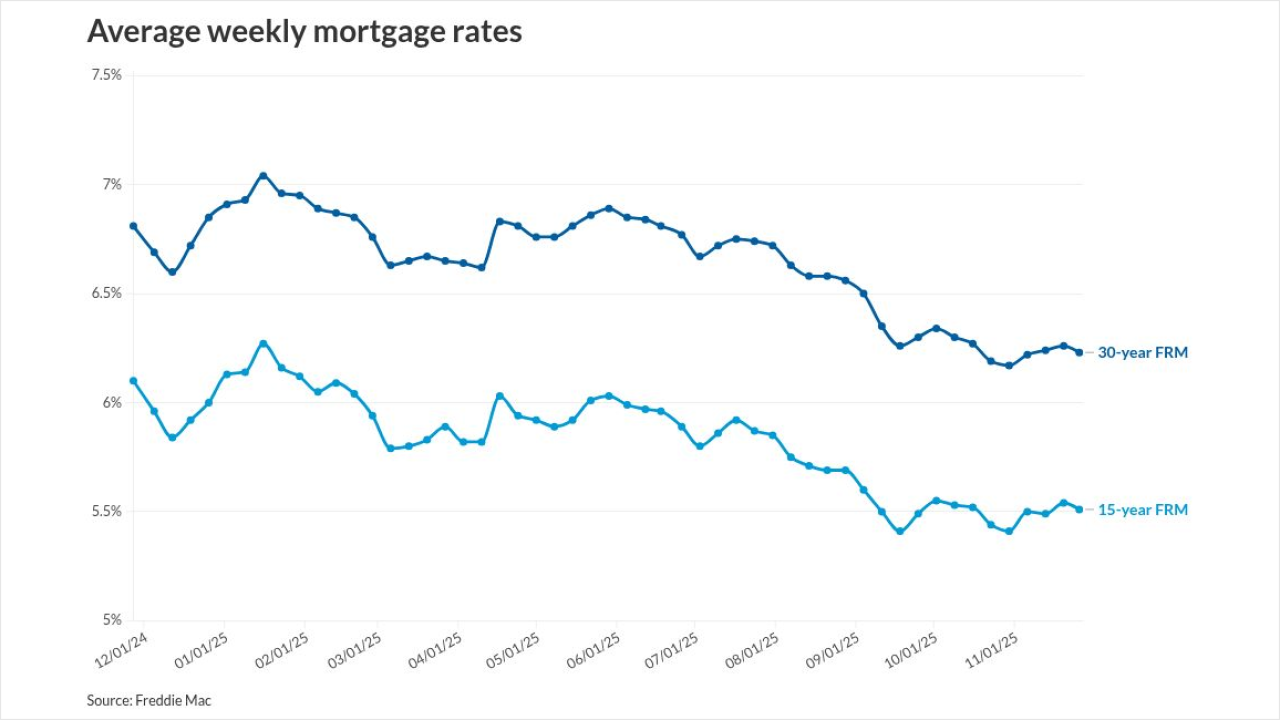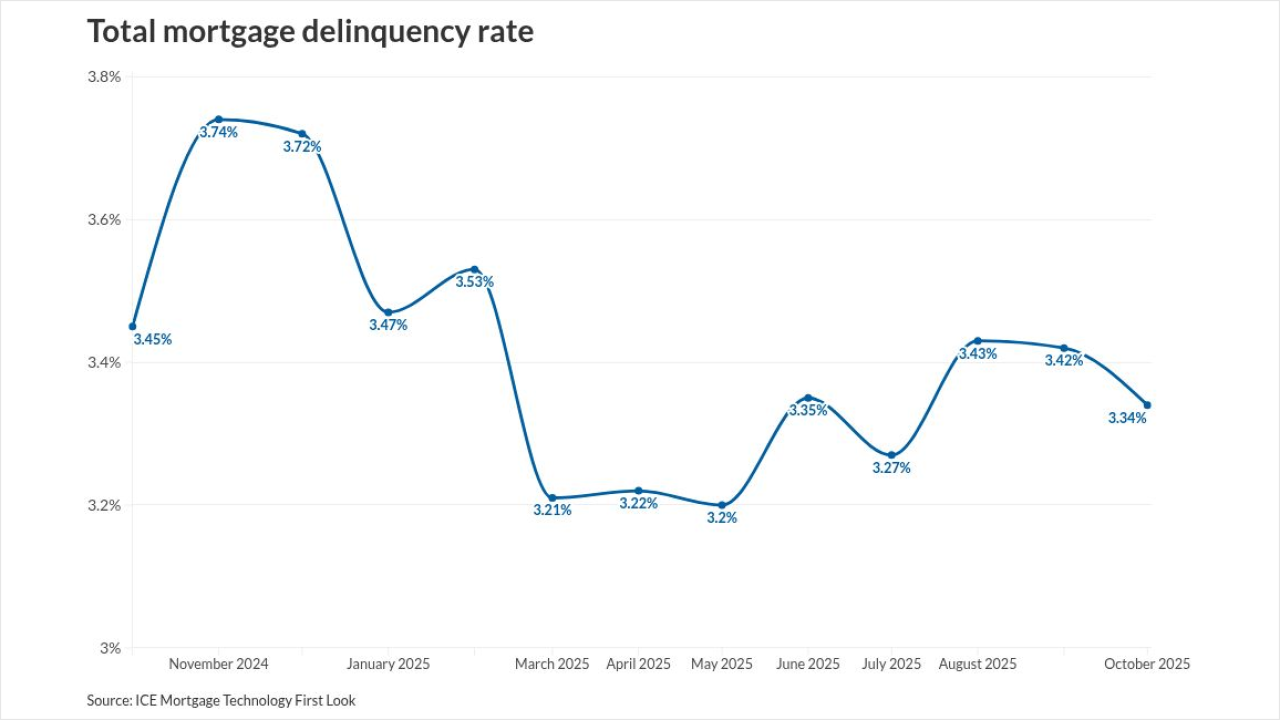The failures of Signature Bank and Silicon Valley Bank have already
The government's swift actions to establish bridge banks protected depositors and kept funds intact, including two loanDepot nine-figure funding facilities
Publicly traded mortgage giants have issued statements this week distancing themselves from the turbulence on Wall Street, but private lenders have been silent. Warehouse lenders are staying mum, but IMBs say they have been in constant communication with their warehouse providers and feel assured that those lines will remain intact, according to executives who spoke to National Mortgage News this week.
"We are not concerned about the future of our ability to have financing for both warehouse financing and MSR financing," said Kevin Parra, CEO of Plaza Home Mortgage. "And we have been assured by our partners in those areas that even if they were mark-to-market, the value of their securities they hold, they would still be solvent and meet capital ratios required by the FDIC."

The Federal Deposit Insurance Corp. is running the bridge institutions for both banks and has installed
The massive lender in a Securities and Exchange Commission filing this week disclosed it moved $225 million of corporate cash balances safely out of Signature Bank this week, and retains a $300 million warehouse facility, to which Signature is a 50% participant, and a $300 million servicing rights facility with the former New York-based institution.
Companies like Rocket Cos., United Wholesale Mortgage and Guild Mortgage have said in SEC filings this week they have no ties to either failed depository, and retain warehouse lines of credit with major global banks. The industry leaders don't tout their warehouse lenders publicly, but SEC filings reveal their repurchase agreements with global institutions like Bank of America and JPMorgan Chase.
The third bank to shut down in recent months, crypto-friendly Silvergate Bank last week confirmed it was
The banking crisis' most immediate impact to lending has been its damper on mortgage rates, which ended a month-long climb to drop 13 basis points this week to 6.6%,
Private lenders were already under scrutiny before the past weekend from warehouse providers over their profitability, liquidity and other plans, said Rod Corriea, president of Shamrock Home Loans in Rhode Island. Banks are likely to pull back slightly, he said. They may do so after they assess IMBs with direct ties to the banks and reassure other lender partners.
"Then I think they'll start making calls to everyone relative to not only the risk of their counterparties, but also instill some confidence that they're still in the game and they're going to continue to be in the game," he said.
Banks in search of liquidity could pull back portfolio products like adjustable rate mortgages and jumbo loans or warehouse lines, said Justin Messer, CEO of
"One good thing I would say about warehouse financing is today we have a lot of excess capacity," he said. "Meaning, the lines that are out there have really small utilization on them for the most part."
A bank exiting the space would be a shock, but a depository trimming a warehouse facility down 50% likely wouldn't cause much pain for a lender, Messer added. Mortgage volume remains muted on the brink of spring,
Warehouse lending has been a profitable business for banks and they are closely watching their mortgage partners today, said Ted Tozer, former head of Ginnie Mae. He recalled warehouse providers standing pat during the mortgage rate uptick of 2018, not pulling back their funding facilities.
"They'll tend to give people time to adjust to the new realities in the economy before they actually start taking any kind of drastic action," he said. "So from that perspective, they tend not to be reactionary."
Dozens of leaders of their respective bank's warehouse departments when reached by National Mortgage News this week either didn't return requests for comment or declined to speak.
IMBs meanwhile need to assess where their warehouse lines are coming from and think about diversification, said David Stevens, CEO of Mountain Lake Consulting and former CEO of the Mortgage Bankers Association, in a webinar discussion hosted by LendersOne on Monday.
"No bank is going to tell you that they're in trouble, because that's what creates the problem, is the feeding frenzy and information starts spreading," he said.
Experts in Monday's LendersOne panel meanwhile predicted a flood of margin calls for firms hedging mortgage pipelines, similar to the rush at the coronavirus pandemic's onset
Lenders earlier this week said it was too soon to gauge if there's widespread concern among prospective borrowers, as feds and Wall Street work to
"We deal with a huge amount of first-time home buyers and you can imagine news like this really, really, causes folks to take a step back and pause, especially if this is their first time making a $300,000, $400,000 purchase," Messer said.
The weekend's panic is also a far cry from the origins of the Great Recession's early bank failures, Parra emphasized.
"It's radically too much," Parra said about the comparison. "There's no comparison between 2008 and what happened over the weekend with two banks. Not even close. It's basically really poor decisions made by these banks, and it's not a systemic problem."





